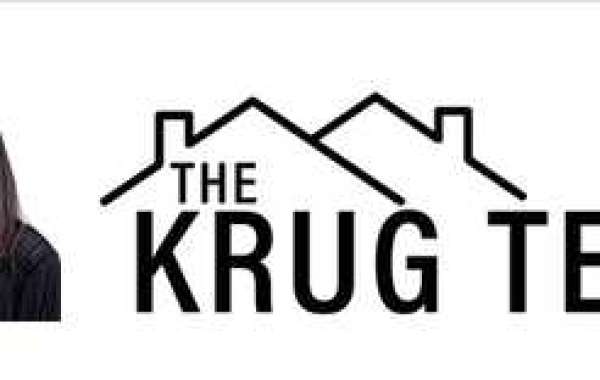Ants are among the most common pests that can invade homes. These tiny creatures may seem harmless initially, but when they gather in large numbers or invade food storage areas, they can quickly become a significant problem. Understanding their behavior and learning how to deal with them can save you from the frustration of a full-blown infestation.
This guide will walk you through the causes of ant infestations, their types, and practical steps to manage them effectively.
Why Do Ants Enter Your Home?
Ants usually invade homes in search of food, water, and shelter. Their small size allows them to enter through cracks, windows, or even door gaps. Once they find a source of food, they leave a chemical trail to guide others from their colony, making the infestation grow quickly.
Common attractants include:
Leftover food crumbs.
Sugary substances like spilled drinks.
Standing water from leaks or spills.
Unsealed garbage bins.
By understanding what draws ants inside, you can take steps to make your home less inviting for them.
Types of Ants You Might Encounter
Different species of ants behave differently, and identifying the type of ants in your home is an essential first step in managing an infestation. Some of the most common types include:
Sugar Ants: These tiny ants are drawn to sugary foods and can often be found in kitchens.
Carpenter Ants: Known for burrowing into wood, they can cause structural damage to your home if left unchecked.
Fire Ants: Aggressive ants that can deliver painful stings. They typically build nests outdoors but may enter homes.
Odorous House Ants: They release a foul smell when crushed and are attracted to sweet foods.
Pharaoh Ants: These ants can spread bacteria, making them a health concern in kitchens and hospitals.
Knowing what type of ant you're dealing with can help you choose the best strategy for removal.
Simple Steps to Prevent Ant Infestations
The best way to deal with ants is to prevent them from invading in the first place. Here are some preventive measures:
Keep Your Home Clean:
Wipe down countertops, sweep floors, and promptly clean up spills. Even small crumbs can attract ants.Seal Entry Points:
Inspect your home for cracks, gaps, or holes in walls, windows, and doors. Use caulk or weather stripping to seal them.Store Food Properly:
Keep food in airtight containers, especially sugary or greasy items. Avoid leaving pet food out overnight.Dispose of Garbage Regularly:
Ants are drawn to trash, so make sure your bins are sealed and emptied regularly.Fix Leaks:
Standing water from leaks in pipes or faucets can attract ants. Repair these as soon as possible.
Natural Remedies to Get Rid of Ants
If you're looking for a chemical-free way to handle ants, several natural remedies can help:
Vinegar Solution:
Mix equal parts vinegar and water in a spray bottle and use it to wipe down surfaces. The strong smell masks the scent trails left by ants.Cinnamon:
Sprinkle cinnamon powder near entry points or areas where you see ants. The smell can deter them.Lemon Juice:
Squeeze fresh lemon juice in cracks and along ant trails. The acidity disrupts their scent trails.Baking Soda and Sugar Mixture:
Combine baking soda and sugar in equal parts. The sugar attracts ants, while the baking soda disrupts their digestive systems.Diatomaceous Earth:
This natural powder is safe for humans but deadly for ants. Sprinkle it in areas where ants are active.
When to Use Professional Help
Sometimes, ant infestations can be too large or persistent to handle on your own. In such cases, calling a professional pest control service is the best option. They can identify the species, locate nests, and use targeted methods to eliminate the problem effectively.
In the middle of your pest management journey, you might need to consider specialized services like pest control ants, especially when natural remedies or DIY methods don’t work. These services can provide long-term solutions and peace of mind.
Tips for Choosing the Right Pest Control Service
If you decide to hire a professional, here are a few things to consider:
Certification and Licensing:
Ensure the company is licensed and certified to handle pest control in your area.Experience with Ant Control:
Look for companies with specific experience in dealing with ant infestations.Eco-Friendly Options:
If you're concerned about chemicals, inquire about environmentally friendly pest control methods.Customer Reviews:
Check online reviews or ask for references to ensure the company is reputable.Guarantee:
Some companies offer a guarantee for their services, meaning they will return if the problem persists.
Maintaining an Ant-Free Home
After eliminating an infestation, it's crucial to take steps to ensure ants don’t return. Regular maintenance and vigilance are key. Here’s what you can do:
Inspect your home regularly for new entry points or signs of ants.
Maintain a consistent cleaning routine, focusing on areas like the kitchen and dining spaces.
Monitor outdoor spaces, including gardens and patios, as ants often build nests close to homes.
Understanding the Importance of Action
Ignoring an ant problem may seem like a small issue at first, but these pests can cause significant damage over time. Carpenter ants, for example, can weaken wooden structures, while others may contaminate food and spread bacteria. By taking swift action, you can protect your home and your family’s health.
Final Thoughts
Dealing with ants may feel overwhelming, but with the right knowledge and tools, you can handle infestations effectively. From preventive measures to professional services, there’s a solution for every situation. Remember to act quickly and stay consistent in your efforts to keep these persistent pests at bay.
By following the steps outlined in this guide, you can enjoy an ant-free home and peace of mind knowing you’ve tackled the problem effectively.










